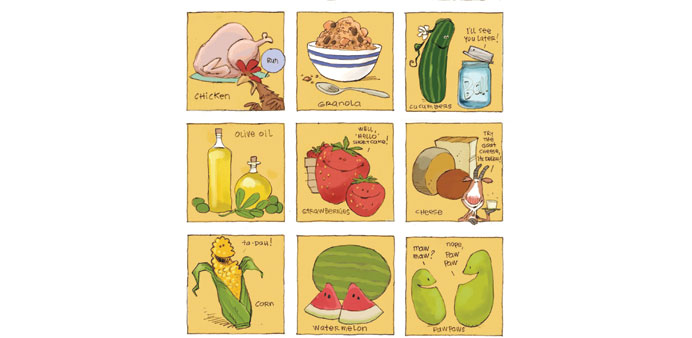|
Life is complicated. No, really. It’s really complicated. That’s my conclusion after wading through the recent position paper on “nutritional genomics” by the Academy of Nutrition and Dietetics (AND) - the world’s largest group of nutrition professionals. |
“Nutritional genomics” refers to how certain nutrients interact with our individual genes that ultimately influence our health and risk for disease. The outcome of these complicated interactions determines quite literally how we either stay well or succumb to illness.
It’s an emerging science, the academy explained. And it follows on the heels of the Human Genome Project, which cracked the genetic codes for our entire human population. This not-so-easy task took 20 years to complete and determined the sequences of 3bn pairs of genetic material common to the human race.
How do nutrients interact with our genes? All the biological information needed to build and maintain our human bodies is contained in our DNA - molecules inside our cells that carry genetic information from one generation to the next. And proteins produced from nutrients in our food we control all the functions of our genetic blueprints, says the AND.
Researchers are beginning to understand how variations on our diet can turn certain genetic codes on or off. In other words, what we eat can actually modify our genetic tendencies to be healthy ... or not. Here are some examples:
Choline, a nutrient found in eggs, milk and wheat germ and folate, a vitamin in dark green leafy vegetables and legumes (dried beans and peas) are “intricately involved” in certain genetic processes, according to the academy. When their balance is disturbed by a deficient diet, some “genetically susceptible” individuals are more prone to develop fatty liver, muscle damage and even some types of cancer.
Genetic variations can also predispose some of us to be overweight or develop chronic disorders such as heart disease and diabetes, say experts. But we are not necessarily doomed by our genes. A nutrient-rich diet and increased physical activity can actually help “de-activate” a genetic tendency to develop these diseases. It’s the old adage, “genetics loads the gun but lifestyle pulls the trigger.”
It’s fascinating too, that our early nutrition in our mother’s womb can programme certain health-related genes to be silenced or activated into future generations. For example, women who endure famine during pregnancy give birth to offspring with a higher incidence of schizophrenia, type 2 diabetes, heart disease, and some types of cancer.
As scientists continue to unravel the intricacies and mysteries of our wonderfully made bodies, we may one day be able to design the perfect diet for each individual based on our own specific “genotype”.
But we are not there yet, said the academy. And we must be cautious as this science continues to be developed. It truly is complicated.
♦ Barbara Quinn is a registered dietitian and certified diabetes educator at the Community Hospital of the Monterey Peninsula. E-mail her at [email protected]

